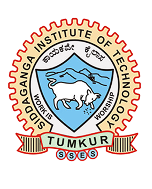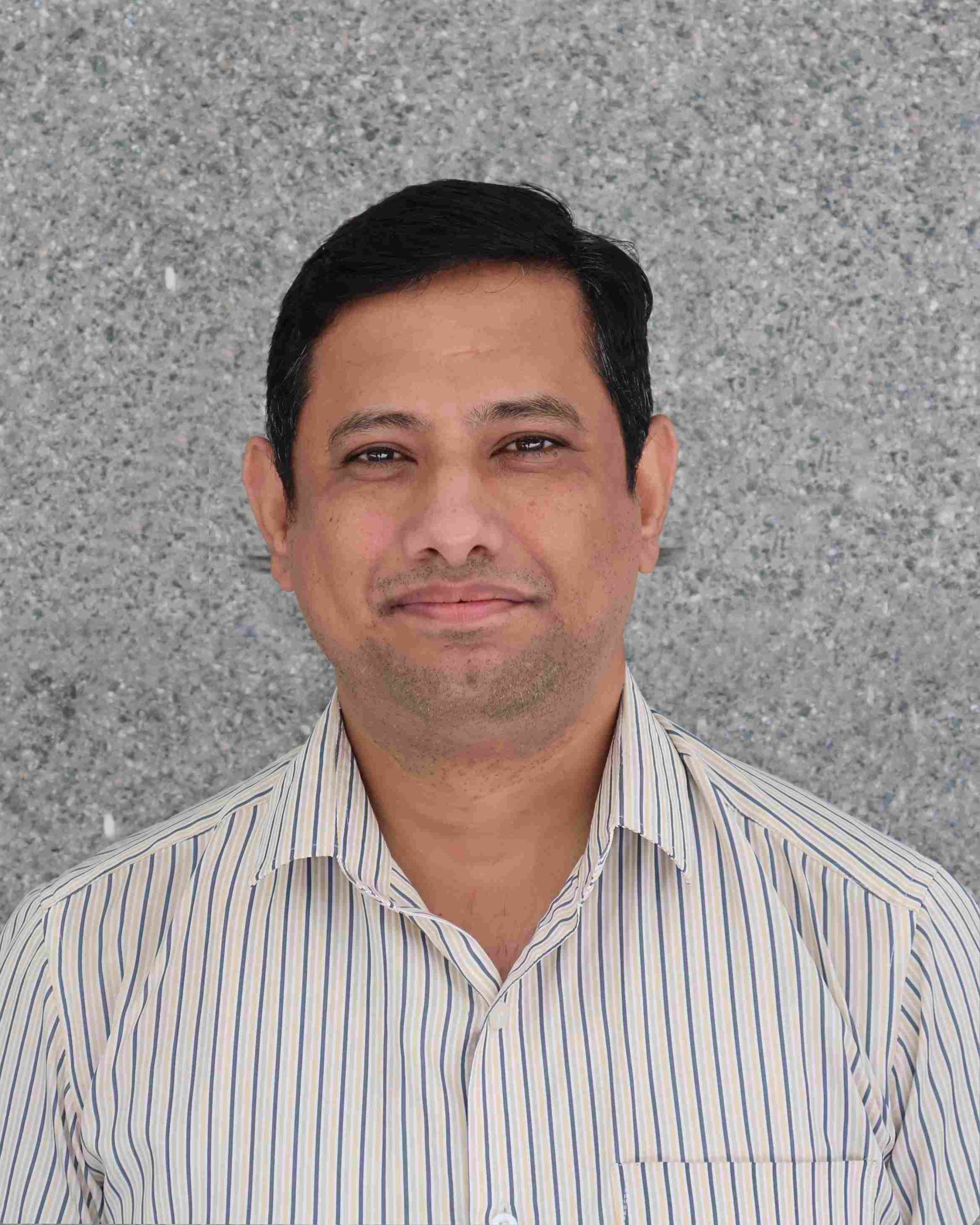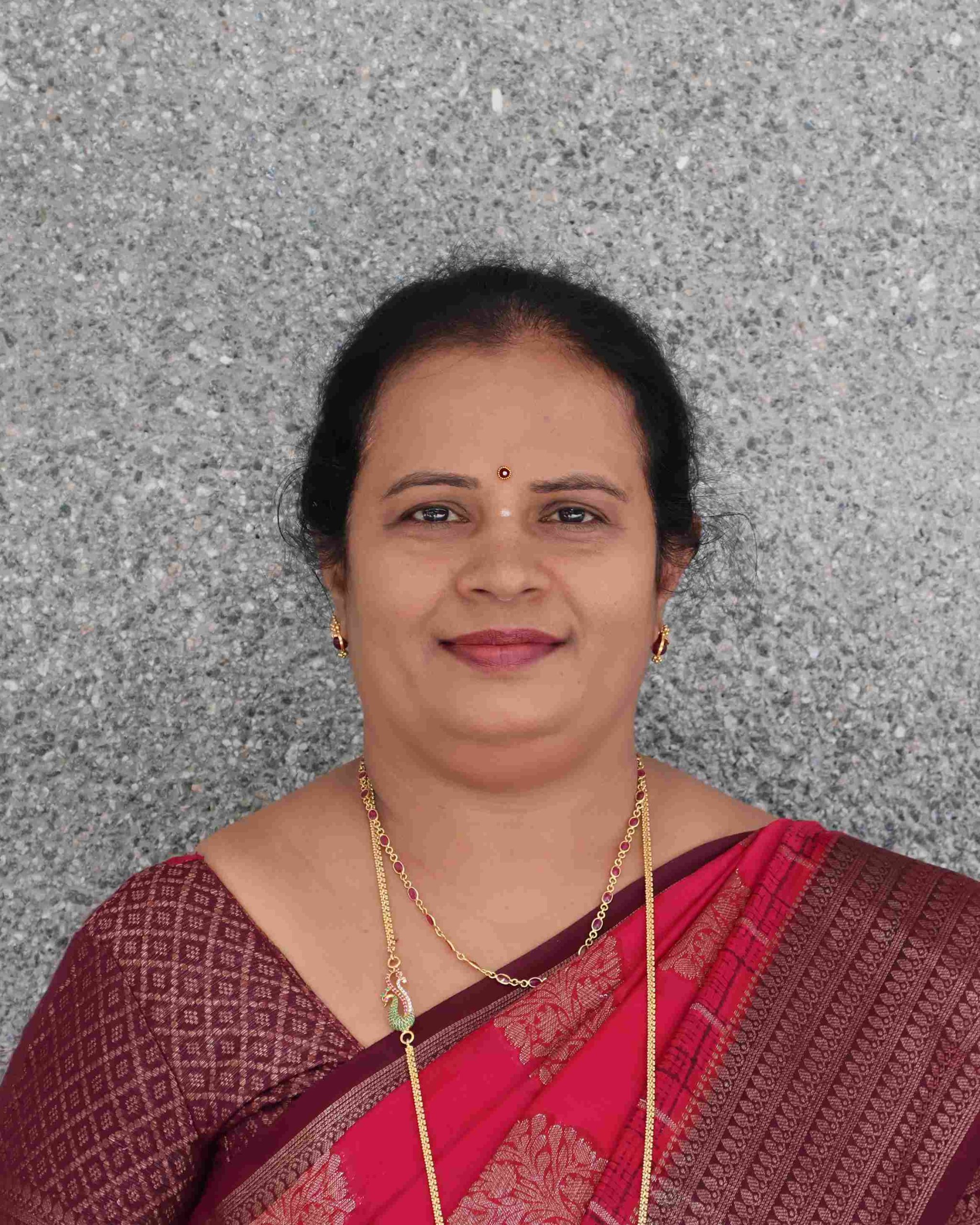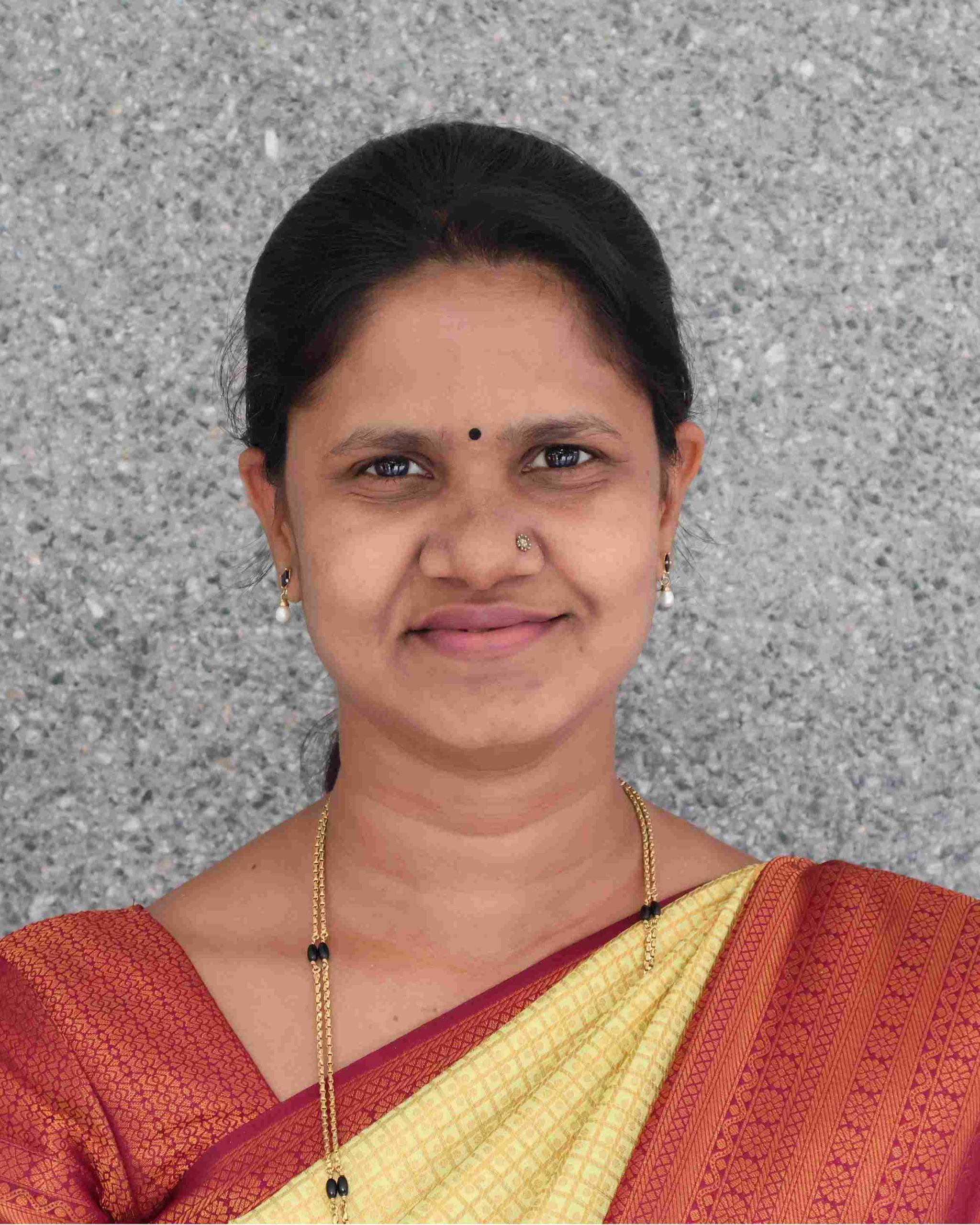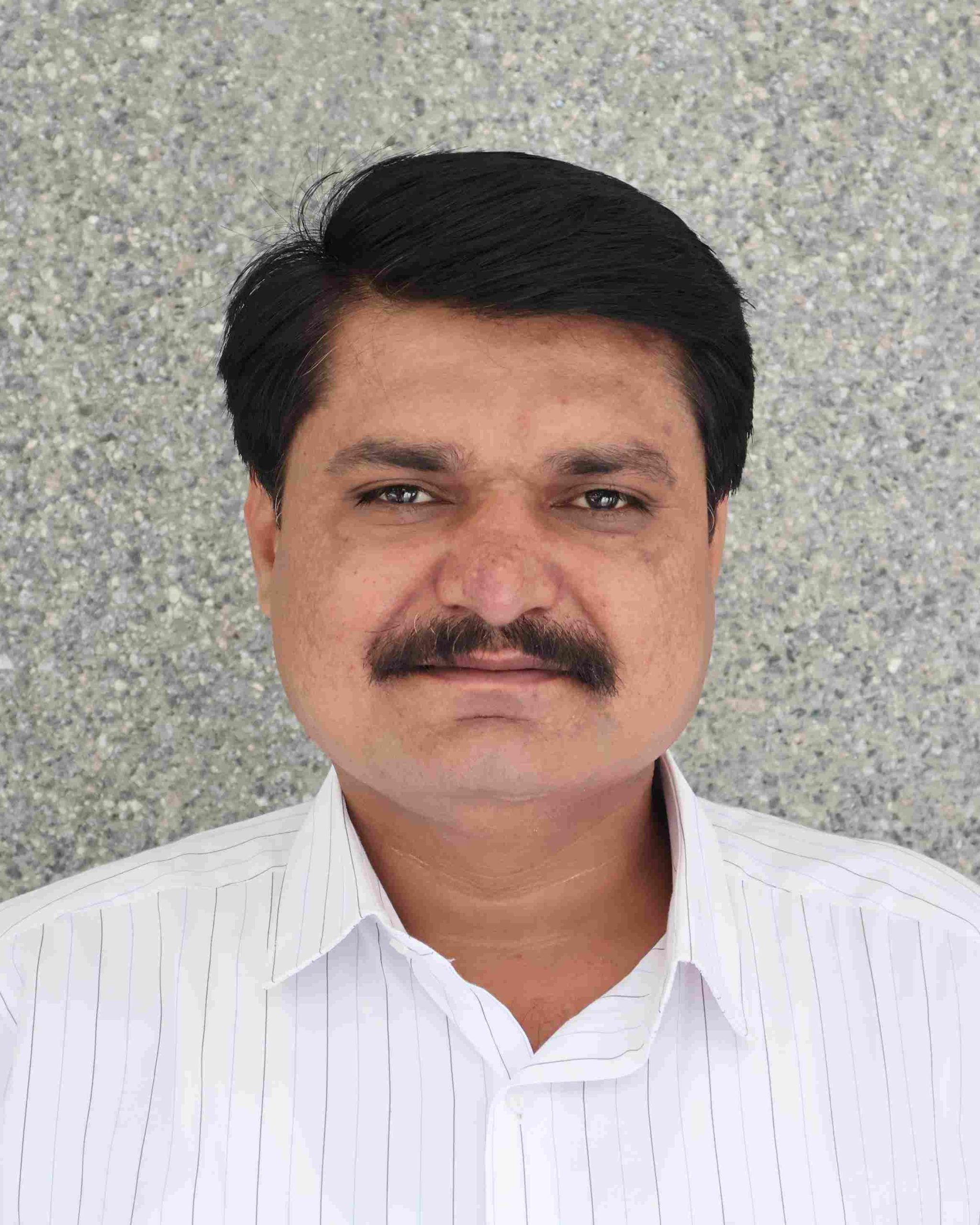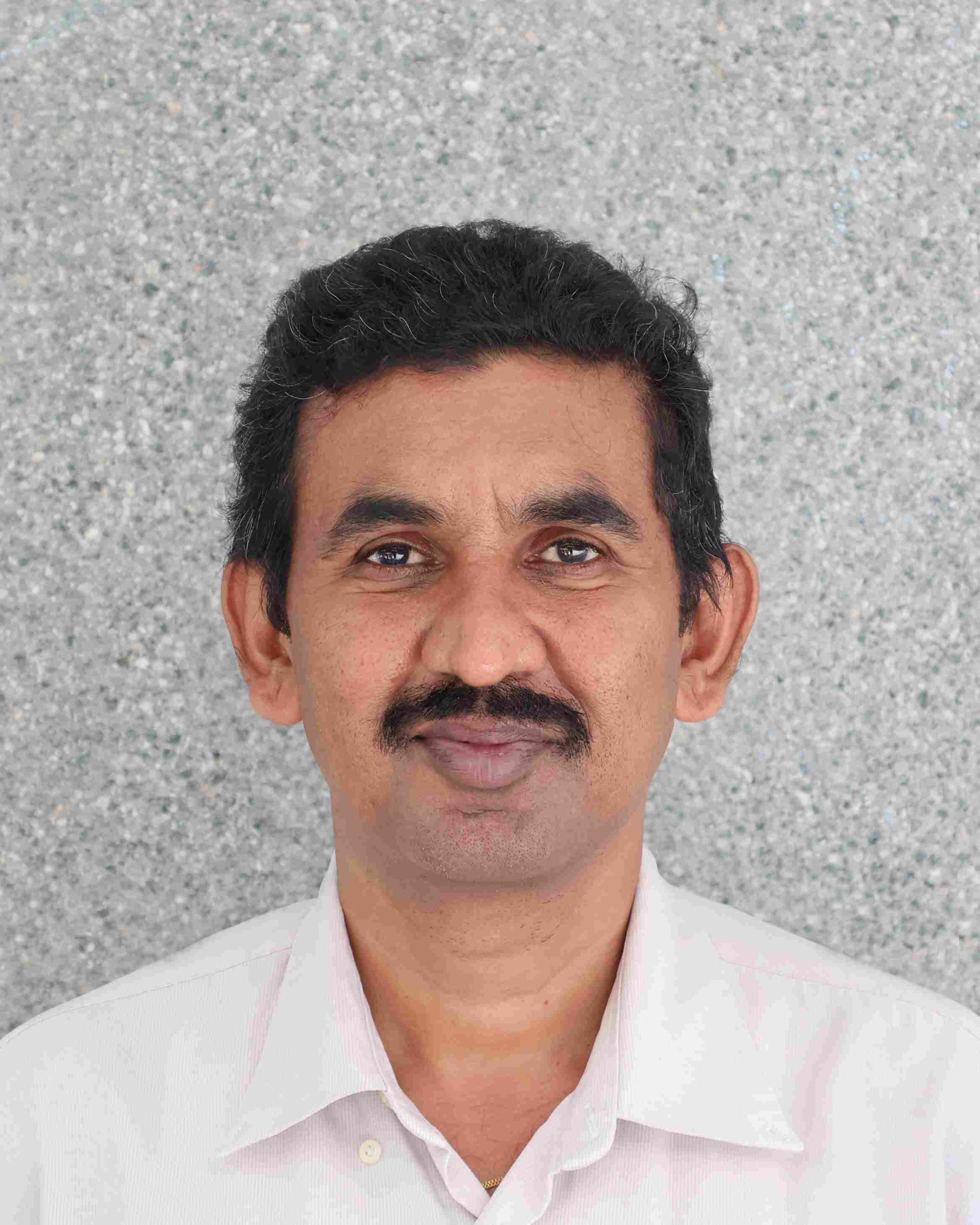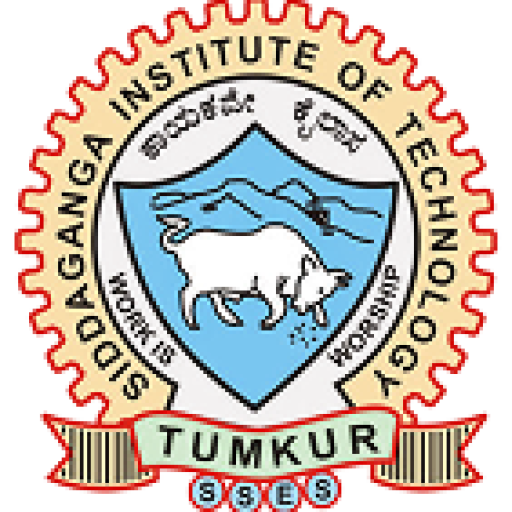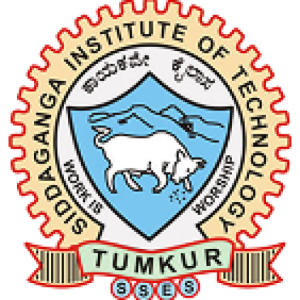Department of Chemistry
Overview
The Department of Chemistry is a vibrant and research-driven academic unit, equipped with three well-established laboratories and a dedicated research center that supports advanced scientific exploration and innovation. The research center is well-furnished with state-of-the-art instrumentation including X-Ray Diffractometer (XRD), Spectrofluorimeter, UV-Visible Spectrophotometer, High Performance Liquid Chromatography (HPLC), Spectrophotometer, Battery Testing Unit, Fourier Transform Infrared Spectrometer (FTIR), Electrochemical Workstation, Atomic Absorption Spectrometer (AAS), Rotoevaporator, Polarimeter, Flash Chromatography System and a Sputtering Unit. These facilities enable high-quality research in diverse emerging areas of chemistry and are extensively utilised for inhouse research and testing services.
The faculty members of the department are actively involved in cutting edge research in various fields such as peptide & peptidomimetics, nanomaterials and polymers. The current research is also focused on energy and environmental related issues like batteries, hydrogen production, identification and removal of organic and inorganic pollutants, sensors biosensors and fuel cell applications. The department has successfully secured numerous externally funded research projects, reflecting its growing reputation and contribution to scientific advancement. In addition to academic and research activities, the department also provides consultancy and testing services for external institutions and industries.
Program Details
I/II Semester UG:
Applied Chemistry for Sustainable Structures and Material Design(CV Stream)
Applied Chemistry For Emerging Electronics and Futuristic Devices (EC Stream)
Applied Chemistry For Advanced Metal Protection and Sustainable Energy Systems (ME Stream)
Applied Chemistry For Smart Systems (CSE Stream)
III Sem. B.E. (Chemical)
Technical Chemistry
IV Semester UG:
Biology for Engineers.
Ph.D. programme
Vision & Mission
Vision
“The Department of Chemistry aims at offering good chemistry knowledge to the students and excel in research and consultancy services.”
Mission
The Department is committed to:
- The promotion of Applied Chemistry knowledge and success of our students through good teaching, guiding and counselling.
- Carryout research solving societal problems.
- Offer consultancy services related to chemistry/chemical issues being faced by the industries
Student Life & Activities
Event Organised
- Two Days Workshop on Characterization Techniques for Nanomaterials and Applications to Lithium Ion Battery (CTNALB-2017). March 10-11, 2017
- One Day Workshop on Analytical Techniques in Nanotechnology Date: 21-05-2024
- One day workshop on Synthesis and Characterization of Nanomaterials. Date: 01-09-2025
- One day workshop on Charcterization and Analysis of synthesized Materials using FTIR, XRD and SEM Instruments. Date: 28-06-2025
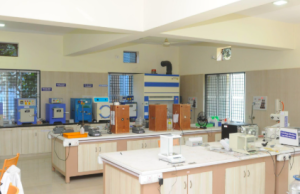
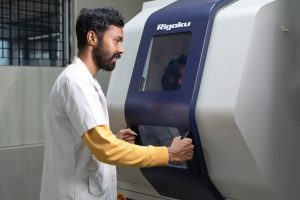
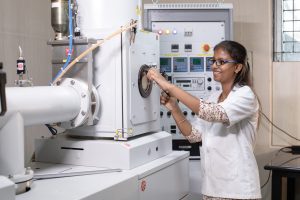
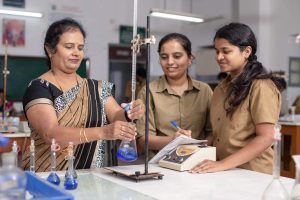
Infrastructure & Facilities
Chemistry Research Center is equipped with :
- X-ray Diffractometer
- High Performance Liquid Chromatography
- Spectroflorimeter
- UV – Visible spectrofluorimeter
- Lithium ion battery testing unit
- FTIR – ATR mode
- FTIR – KBR pellet method
- Impedance Analyser
- Thin film coating unit
- Electrochemical workstation
- Flash Chromatography
- Atomic Absorption Spectrometer.
- Glove box
- Photocatalytic reactor
- Kinematic Viscosity
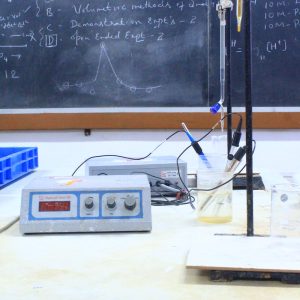
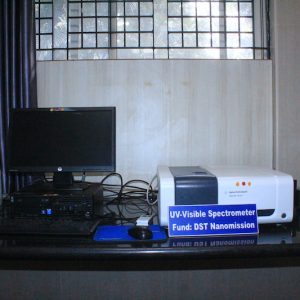
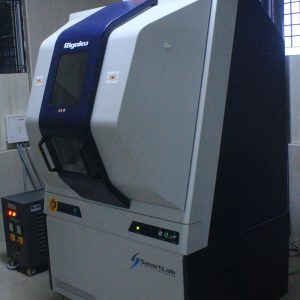
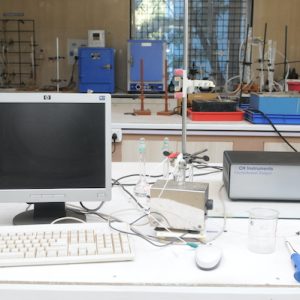
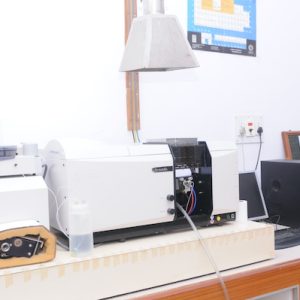
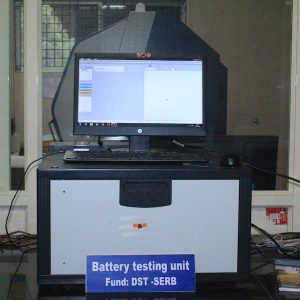
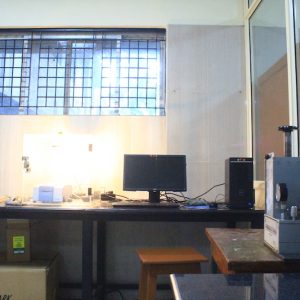
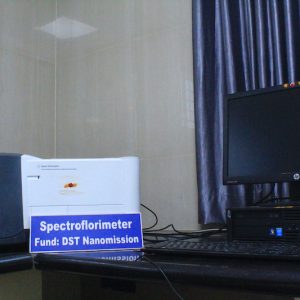
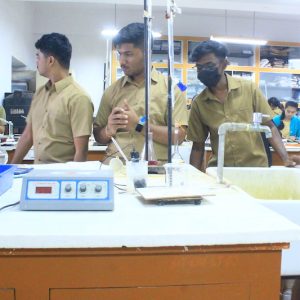
Faculty
The department has a team of highly qualified faculty members, specializing in organic synthesis, spectroscopy, nanotechnology, environmental chemistry, and medicinal chemistry. Faculty members actively contribute to research, mentoring, and industrial collaborations.
No. of Ph.D’s: 05
No. of Masters: Nil
Total no. of Professors (teachers): 01
Total no. of Assoc. Professors (teachers): 01
Total no. of Asst. Professors (teachers): 03
Academic Programs & Syllabus
Program Educational Objectives (PEOs) - UG
Graduates of the Chemistry program will:
Demonstrate scientific expertise in chemical principles and laboratory techniques.
Pursue higher education and research in chemical sciences and allied fields.
Apply chemistry knowledge in pharmaceuticals, materials science, energy, and environmental sectors.
Uphold ethical and professional values in their scientific and industrial practices.
Program Outcomes (POs) - UG
Graduates will be able to:
Apply chemical principles to solve real-world challenges in various industries.
Conduct experiments and research, analyzing data with modern chemical tools.
Utilize analytical and instrumental techniques for problem-solving.
Collaborate effectively in multidisciplinary teams with strong communication skills.
Engage in lifelong learning and ethical scientific practice.
Industry Collaboration & Placement
The department has strong industry connections, offering internships, research projects, and industrial training. Graduates secure roles in pharmaceuticals, petrochemicals, materials science, food technology, and environmental industries. Major recruiters include:
Dr. Reddy’s, Biocon, Syngene, Jubilant Life Sciences, Hindustan Unilever, BASF, GAIL, HPCL, and more.
Approximately 65% of graduates are placed in leading industries, while 35% pursue higher education and research opportunities at reputed institutions worldwide.
Achievements & Recognition
Dr. H.S. Lalithamba
- Received the distinction of ‘Top 10 most downloaded OBC article in January 2010’ for publication in Org. Biomol. Chem., 2010, 8, 835–840, entitled “New and simple synthesis of acid azides, ureas and carbamates from carboxylic acids: application of peptide coupling agents EDC and HBTU’’.
- Received ‘Best Project Award – 2013’ for the student project entitled ‘An efficient protocol for the Synthesis of Nα-Protected β-Amino Alcohols and Peptidyl Alcohols employing EDC/HBTU’, organized by Indian Institute of Chemical Engineers on 14th May 2013 held at M.V.J.C.E., Bangalore (Funded by KSCST).
- Outstanding Project of the Year – 2013’ for the student project entitled ‘An efficient protocol for the Synthesis of Nα-Protected β-Amino Alcohols and Peptidyl Alcohols employing EDC/HBTU’, during the Seminar and exhibition held at Angadi Institute of Technology and Management, Belgaum on 30th and 31st August 2013 conducted by KSCST.
- Award of seed money to Young Scientist for research’ by Vision Group of Science and Technology, Department of Information Technology, Biotechnology and Science & Technology, Government of Karnataka in 2013.
- Outstanding Project of the Year – 2014’ for the student project entitled ‘One-pot synthesis of Fmoc/Cbz-protected β-amino alkyl azides directly from alcohols’ during the Seminar and exhibition held at KLE Society’s B.V. Bhoomaraddi College of Engg. & Technology, Hubli on 28th and 29th July 2014 conducted by KSCST.
- Received First Prize for the student project entitled ‘Synthesis and biological evaluation of peptides as potential antimicrobial agents using in vitro and in silico studies’ for their poster presentation’ in the Oneday International Technical Seminar on “Advances in Biotechnology and Allied Sciences” organized by Dept. of Biotechnology, SIT, Tumakuru on 20th May 2015.
- Received Second Prize for the project entitled ‘Synthesis of Nα-protected diazomethylketones employing BOP and its utilization in the preparation of bromomethylketones, thiazoles and studies on their biological activities’ for the poster presentation at the Advanced Lecture Series in Ocular Pharmacology held on 8th and 9th Aug 2015 at SIT, Tumakuru
- Received Best Oral Presentation for the student project entitled ‘Transesterification of Pumpkin oil using nano calcium oxide catalyst’ in the National Conference on Recent Advances in Industrial Engineering and Applied Chemistry on 21st and 22nd October 2016 at SSIT, Tumakuru
- Received Best Poster for the project entitled ‘Designing, Synthesizing and Biological evaluation of peptides as potential antimicrobial agents using in vitro and in silico studies’ in the National Conference on Recent Advances in Industrial Engineering and Applied Chemistry on 21st and 22nd October 2016 at SSIT, Tumakuru.
- Received Second Prize for the project entitled ‘Antibacterial and Anti-inflammatory studies of dithiocarbamate-in silico and in vivo’ in the 1st International Conference on Recent trends in Bioengineering (ICRTB 2018) at MIT School of Bioengineering, Sciences & Research MITADT University, Loni Kalbhor, Pune on 17th February 2018
- Received First Prize in Poster presentation, for the project entitled ‘Nano CaO catalyzed synthesis of acyl selenourea derivatives from acid chlorides of N- protected amino acids’ at REACT’19- A national level tech fest, on 29th & 30th March 2019 organized by the department of Chemical Engineering, R.V. College of Engineering, Bengaluru- 560 059.
- Has secured position in World Scientist and University Rankings 2020 list. World ranking position-637864, Country-22732- and at SIT Tumakuru-01 surveyed by AD Scientific Index, 2021 AD ranking for Scientists.
- Secured position in World Scientist and University Rankings 2021 list. World ranking position- 589627, Country – 22250 and at SIT, Tumakuru – 01 surveyed by AD Scientific Index, 2022 AD ranking for Scientists.
- Received Third Prize for the project entitled ‘Design and development of photocatalytic reactor and heterogeneous photocatalyst for biodiesel production’ from the department of Mechanical Engg. during the Major Project Exhibition -2022 on 13th July 2022.
- Received ‘Best Project Award – 2022’ for the student project entitled ‘Development of Heterogeneous Photocatalytic Method for Biodiesel Production’, during the Seminar and Exhibition held at Visevesavaraya Technological University (VTU), Belgavi on 12th and 13th August 2022 (Funded by KSCST).
- Received ‘Certificate of Best Paper Presentation’ for the project entitled ‘Green Route to Synthesize CaTiO3 Photocatalyst using Terminalia Catappa seeds extract and its Utilization in green fuel – U163 in the International Conference on Recent Developments in Mechanical Engineering, ICRME-2022 on 24th and 25th June 2022 at SIT, Tumakuru.
- Secured position in World Scientist and University Rankings 2022 list. World ranking position- 691624, Country – 22127 and at SIT, Tumakuru – 01 surveyed by AD Scientific Index, 2023 AD ranking for Scientists.
Dr. Nagaraju G
1. Surfactant free hydrothermal synthesis of ZnO nanowires, nanorods and microrods’, Materials science in semiconducting processing 13 (2010) 21 (Appeared in top 25 hottest articles)
2. Single-crystal cadmium carbonate nanoribbons and nanorings synthesis via hydrothermal method’ (Mater. Research Bull. 45 (2010) 1736) appeared in Cover Page.
3. ‘Synthesis of Rhodium Oxide nanoparticles by Ionic liquid- assisted Hydrothermal method’ was selected for Sixth Science Conclave – A Congregation of Nobel Laureates and Eminent Scientists, IIIT- Allahabad, Uttar Pradesh, India from 8th – 14th December 2013.
4. One of our articles entitled ‘Facile combustion synthesis of ZnO nanoparticles using Cajanus cajan (L.) and its multidisciplinary applications’ has been written-up as a news item in Nature Publishing Group-Asia Materials, (Nature India)
Materials Research Bulletin 57 (2014) 325–334
5.‘A novel mesoporous foam TiO2 nanomaterials for effective hydrogen production’, Chemistry- A European Journal, (21 (2015) 17624) appeared in cover page.
6. ‘Hydrothermal synthesis of V2O5 nanoparticles and its electrochemical application in Li battery’, Bulletin of Materials Science, (ISSN: 0250-4707) (IF:0.92) has been appeared as Editor choice article.
7. ‘Synthesis, characterization of CeO2 nanoparticles via solution combustion method for photocatalytic and antibacterial activity studies’ Chemistry Open, 4 (2015) 77 has been identified as The most-accessed chemistry articles from ChemPubSoc Europe, ACES and GDC h journals for January 2015.
8. ‘TiO2-RGO hybrid nanomaterials for enhanced water splitting reaction’, Int. Journal of Hydrogen Energy, 40 (2015) 12209 has been cited by United States Patent and Trademark Office bearing Application no. US-20140131192-A1 dated 15th May 2014 and Grant US-9545625-B2 dated 17th Jan 2017.
9. Award of seed money to Young Scientist for research’ by Vision Group of Science and Technology, Department of Information Technology, Biotechnology and Science & Technology, Government of Karnataka in 2016
10. Award of seed money to Young Scientist for research’ by DST, Govt. of India during 2013
11. Secured top 2% scientist position in World Scientist and University Rankings from 2021, 2022, 2023, 2024, 2025 surveyed by AD Scientific Index, 2024 AD ranking for Scientists.
Dr.Anil H.N Rao.
Received the best student project of the year for the following publication from Karnataka State Council for Science and Technology, SPP during AY 2020-21.
Alumni Success
Our alumni have made significant contributions in academia, research, and industrial innovation. Many hold key positions in R&D, quality control, product development, and environmental analysis, driving advancements in chemical and allied sciences.
Admissions
The department admits students for B.Sc. in Chemistry through institutional and merit-based selection processes. Postgraduate admissions are based on academic records and research potential. Visit the Admissions Page for further details.
